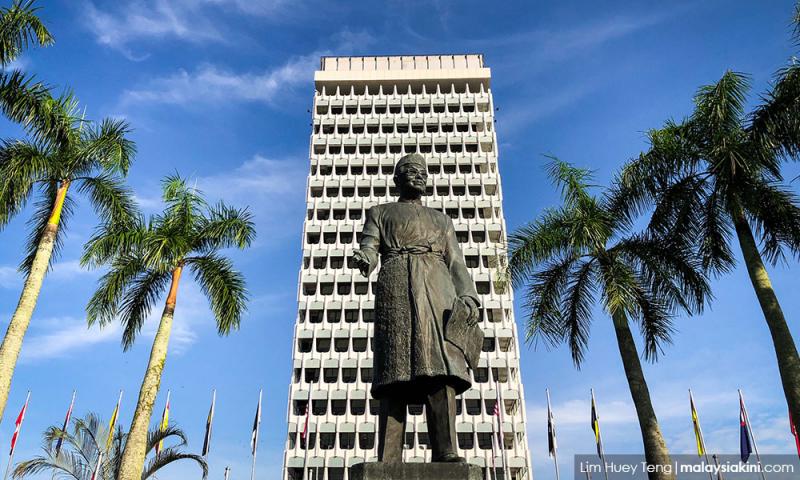LETTER | Penjana stealing Covid-19 bill's thunder
After three months of being placed under the movement control order (MCO), conditional MCO, and now recovery MCO, a Covid-19 (Temporary Measures) Bill is imminent. The Bill is expected to be tabled in the next parliamentary sitting in July.
Although a full parliamentary sitting has yet to be convened under the new government, save for the limited sitting on May 18, the Prime Minister recently announced the National Economic Recovery Plan (Penjana) stimulus package, the latest in a series of stimulus packages. All these stimulus packages share a similarity - they were announced without first being tabled nor debated in Parliament. Has Penjana overshadowed the Bill?
There have been questions about the legality of such stimulus measures without parliamentary authorisation. The legality of these measures, especially those involving direct fiscal injections will depend on where the money comes from in the first place.
The government recently stated that most of the direct injection would be raised through domestic borrowings. This will ultimately contribute to Malaysian public debt, which currently stands at 52 percent of GDP. The raising of the self-imposed public debt ceiling would first require approval from Parliament. Instead, if the source of the fiscal injections comes from the Consolidated Funds, any withdrawal must comply with the Federal Constitution.
These measures ought to be included as part of the Bill. A number of jurisdictions across the world had enacted similar Covid-19 laws in order to address the significant economic impact brought by this pandemic. Several measures ought to be included in the Bill:
1. Temporary relief against non-performance of contractual obligations
Businesses are inevitably exposed to legal repercussions for breach of contract due to non-performance arising from restrictions during the MCO. Singapore, in its Covid-19 (Temporary Measures) Act 2020 put in measures to support businesses. Parties are not allowed to commence or continue any legal action against the defaulting party, enforce any security, or make any application for winding up or bankruptcy. This temporary relief will apply for a period of six months from April 23 and may be extended further.
A similar measure, if included in the Bill, would be most welcomed by Malaysian businesses. It is important for this provision to apply retrospectively from March 18 when the MCO first commenced.

2. Covid-19 as a force majeure event
An alternative approach to the above would be for the Bill to declare the pandemic as a force majeure event. A similar approach was adopted in France, Spain, and China. A force majeure clause commonly covers various situations in which the performance of a contract is delayed, prevented, or hindered. However under existing laws, if a force majeure clause is not wide enough to cover the outbreak of Covid-19 as a triggering event, parties will not be able to rely on such a clause. If the government were to designate Covid-19 as a force majeure event, more parties can excuse themselves from their contractual obligations, which would prevent impending litigations.
3. Relief of directors’ personal liability for wrongful trading
Australia inserted a section into its Corporations Act 2001 to remove a director’s personal liability for trading while insolvent. Similarly in Malaysia, section 539(3) of the Companies Act 2016 provides for the personal liability of directors if the company contracted a debt without any reasonable expectation of the company being able to pay the debt. If this liability were to be temporarily removed in the Bill, directors may be more prepared to lead companies out of financial difficulties. However, to prevent this relief from being abused for fraud, there must be clear statutory provisions as to the mechanism of this relief and in what circumstances it should apply.
4. Rental waiver for business tenants
Under the recently passed amendments to its Covid-19 regulations, Singapore extended rental waivers for business tenants for two more months. Qualifying commercial properties are now entitled to four months of rental waiver, while other industrial or office properties will be given a three-month waiver. Two months of this waiver will be funded by the government, while the rest are required to be borne by landlords. It is advisable for the Malaysian government to include a similar provision in the Bill in order to provide more support for companies in rebuilding their businesses.
Although we are in desperate times, it is essential that the executive continues to uphold the pillars of democracy by allowing Parliament to perform its functions and properly scrutinise measures against Covid-19. The government was not exactly clear on the sources of funding for the stimulus packages. Therefore, it is important for the Bill to not only provide measures to mitigate the impact of Covid-19, but to also legalise measures that were announced but have yet to be tabled, debated, and gazetted.
The views expressed here are those of the author/contributor and do not necessarily represent the views of Malaysiakini.
RM12.50 / month
- Unlimited access to award-winning journalism
- Comment and share your opinions on all our articles
- Gift interesting stories to your friends
- Tax deductable
